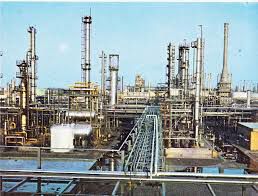IRAN, AND THE ROOT OF THE ANGLO-IRANIAN OIL COMPANY’S DISPUTE. CHALLENGING THE UNITED KINGDOM’S WORLD AUTHORITY. A TURNING POINT. 1945-1951
The agreement did not really alter the 1933 Agreement (which was outlined earlier). Payments under item (i) were increased from 4s, to 6s gold and under item (ii) to 1s gold. Item (iii) was also altered in Persia’s favour to provide for an immediate payment to the Government in respect of the sum standing at General Reserve at 31st December 1947, and further payment (equal to 20%) in respect of allocations to General Reserve thereafter. It was further provided that these payments should be entirely free from the effect of British income tax, and that the total annual payments in respect of dividend and allocation to General Reserve should be minimum of £4,000,000. ¹
This on legal advice was presented as a Supplement Agreement so as not to call in question the validity of the existing 1933 Agreement.
The Company’s representative and the Iranian Minister of Finance signed the Supplemental Agreement on 17th July 1949.
The Supplemental Agreement was submitted for ratification by the Majlis. This had not been achieved by 30th July 1949, when the Majlis session ended, and the devaluation of sterling in September of that year did nothing for the standing of Britain.
When a new Majlis was elected in September 1949, the Ministry of Finance urged upon the Company the necessity for revising the Agreement so as to make it more acceptable to the new Majlis. The Company replied that the Supplemental Oil Agreement was the result of long and difficult negotiations and they could not hold out any hope of amending it, and they pointed out that, in any case, the Majlis had not yet reached any decision on it. ²
Two Iranian Prime Ministers hesitated to commend the Supplemental Agreement to the Majlis.
When Mansur became Prime Minister early in 1950, the Shah instructed him to get the Supplemental Agreement through the Majlis, but he was uncertain how to do so and, in the event, merely staved off the issue by presenting the Agreement to the newly elected Majlis and allowing it to be referred to a special commission of the Majlis which, though it was supposed to contain equal representation of the various factions in the house, in fact contained five members of the National Front in its total membership of 18. Mansur later fell from office and was replaced by General Razmara. ³
General Razmara was reluctant to give the Supplemental Agreement support, and his public references to it were in equal terms. ‘The Bill embodying the Agreement therefore remained with the Majlis Oil Commission which, in November 1950, recommended to the Majlis that it did not sufficiently serve Persian interests.’4 The Oil Committee of the Majlis was chaired by Dr. Musaddiq. It rejected the Supplemental Agreement in December 1950. The final blow to the Supplemental Agreement’s chances came when the Arabian-American Oil Company (ARAMCO) reached a 50:50 profit sharing agreement with the Saudi Government, which was announced in December 1950.
Meanwhile on 10th February, the Company, in order to strengthen Razmara’s hand, not only informed him that they were ready to negotiate an entirely new agreement based on an equal sharing of profits, but offered him substantial monetary support (£5 million at once and £2 million a month for ten months, all in advance of future royalties) in order to assist the Persian Government in their immediate financial difficulties. Razmara preferred, however, not to reveal this offer to the Oil Commission and the Majlis and attempted to enact a nationalisation resolution in another way. He appeared before the Oil Commission in order to deliver reports from Persian technical, financial and legal experts which were unfavourable to nationalisation. This action undoubtedly led to his assassination three days later. 5
-
-
-
-
-
-
- PRO, London, CAB 129/47 CP (51)257, Memorandum by Herbert Morrison on the dispute with Persia, Secret, 26th September 1951, p. 3.
- Ibid, p. 4.
- Ibid.
- Ibid.
- Ibid.
-
-
-
-
-



